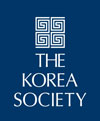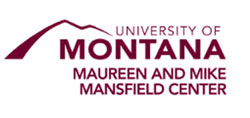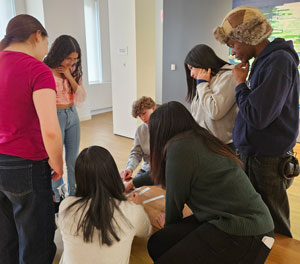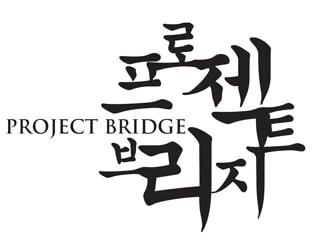![]()
![]()
2023-2024 Los Angeles, Montana, and New York Youth Ambassadors at Gyeongbuk Palace in Seoul
Project Bridge, whose name captures the goal of reaching across ethnic and cultural divides, aims to help young people develop insights and skills needed to “bridge” the gaps between people of divergent cultural heritages. By fostering greater intercultural awareness and understanding, it empowers the youth ambassadors to view social and cultural differences as a pathway - not a barrier - to exercise their responsibilities as emerging young leaders in an increasingly interconnected and richly diverse world while educating them on the long-standing and close relationship between the peoples of Korea and the U.S.
U.S. Partners:
The Korea Society in New York developed the program in response to the 1992 Los Angeles Uprising that erupted on April 29 (Sa-I-Gu in Korean). The first delegation of urban “Youth Ambassadors” was sent to the Republic of Korea in 1993 on a program named Kids to Korea. Early in its inception the Society partnered with Pacific Century Institute in Los Angeles to further hone and advance the program. And, 27 years later in 2019 Project Bridge welcomed a new demographic and partner, The Maureen and Mike Mansfield Center at the University of Montana in Missoula, bringing a diverse rural and Indigenous perspective to the program.
 |
 |
 |
Students:
Open to junior and senior public high school students in New York and Los Angeles, and a range of students in Montana, the program attracts applications from students of different socioeconomic and ethnic backgrounds. Through a highly selective application process eight students from Los Angeles, eight students from New York and eight students from Montana are selected each year to become Youth Ambassadors.
Curriculum:
The Program has evolved into an academic year-long program in which students, using Korea as a case study, cultivate their understanding of race and crosscultural relations and hone their leadership and intercultural competence skills. Students participate in bi-monthly workshops offered both in-person and virtually. They undertake a 10-day study tour to the Republic of Korea. Finally, the Program culminates in community presentations and a graduation ceremony.
Workshops:
In the bi-monthly workshop students are introduced to a wide range of topics spanning Korean pre-modern and modern history, the Korean war, education in Korea, the arts and cuisine as well as cultural values. They explore current events, U.S. and regional relationships, and the economic factors that led to the ‘Miracle on the Han’. Additionally, they investigate race relations in the U.S., specifically the 1992 Sa-I-Gu incident, otherwise known as the Los Angeles Uprising, the impetus for creating the Program. Outside experts frequently lead lively and informative discussions both in-person with the smaller regional groups and via Zoom with the entire cohort. Students also receive Hanguel language training and etiquette coaching along with preparation for the study tour.

Study Tour:
The ten-day spring Study Tour to Korea, a highlight of the program, provides youth ambassadors with a powerful experience to see Korea first-hand and meet Koreans in their own environment. It involves a geographic breadth of exposure to many people, activities, and places in Korea of historical and social significance. During this all expenses paid tour students have abundant opportunities to engage with Korean high school and university students, instructors and professors, corporate leaders, government officials, Buddhist monks and many others as they travel around the country experiencing both city and rural life. Throughout the tour they gain a deeper understanding of the Korean people as well as the unique and close relationship between the U.S. and Korea.
![]()
Community Presentation:
The Program culminates in early summer when the youth ambassadors share their newly acquired knowledge and insights about Korea with their families, friends, teachers, and the greater community. These community presentations are open to the public and precede a graduation ceremony. These Project Bridge “graduates” join an alumni group that now numbers over 400.
![]()
Sponsors:
It is only with the expert guidance and generous hospitality of our Korean hosts and sponsors that we have been able to sustain the Project Bridge Program over these many years. Through this support the Korea Society, The Pacific Century Institute, and The Mansfield Center can work with young people to continue to “build bridges” between our two nations. The time students spend with sponsors enhances the invaluable lessons of their Korean experiences and the fond memories of Korea that will endure for a lifetime. Fore Information about Sponsors, please click HERE.
2025 Supporting Sponsors and Sites Visited by Youth Ambassadors
|
Corporations, Businesses, Government |
Historical and Cultural Sites * COEX (Seoul) * Dosan Sewon Confucian Academy (Andong) *DMZ * Gyeongbokgung Palace (Seoul) * Gyeonggijeon Shrine (Jeonju) *Hahoe Mask Museum (Andong) *Hahoe Village (Andong) * Jeonju Handicrafts Experience Center * Korean Traditional Cultural Center (Jeonju) * Markets: Insadong, Mangwon, Mapo and Myengdong (Seoul) * Metropolitan Museum of Art (NY group) * Pohang Space Walk * Seonunsa Temple Stay (Gochang-gun) * Tumuli Park & Daereungwon Tombs (Gyeongju) |
* More information on the Los Angeles Pacific Century Institute Program- * More information on the Missoula, Montana Mansfield Center Program

If you want to be contacted when our next Project Bridge Youth Ambassador competition opens or if you have a question, please
click here.






